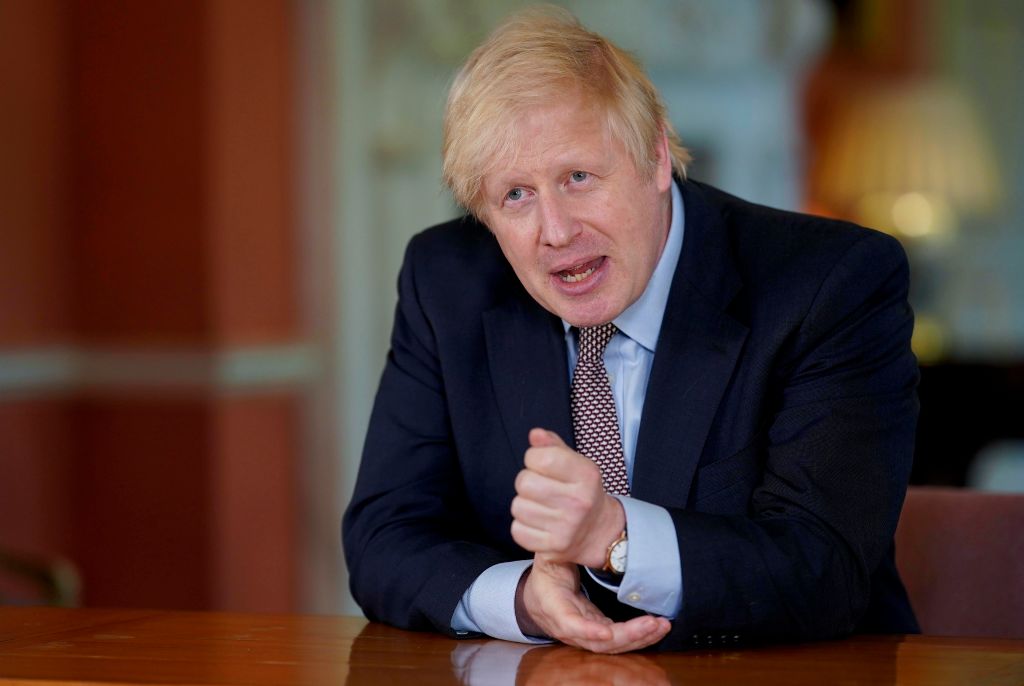So what did you think of the Prime Minister’s statement? I thought it was disappointingly over-cautious and suspect that ministers will come to rue the extra economic damage they are allowing by not sanctioning a bolder path out of lockdown. A ‘baby steps’ approach to getting back to normality over the next few months, contingent on what happens to the R value and reversible at any moment – and with the two-metre rule to be somewhat implausibly applied to public transport – is not what I was hoping to hear.
But even before the PM had finished talking, the verdict of Twitter was in. And there was widespread anger about a supposed lack of clarity on Boris Johnson’s part. Not only were some affecting to find the admittedly underwhelming phrase ‘Stay Alert’ baffling, but a school of questioning along the lines of ‘can a mobile hairdresser cut a window cleaner’s hair whilst he is halfway up a ladder?’ has also come to the fore.
‘If I sit on a chair in the park and my mum sits on the bench, can I talk to my dad if he happens to walk by on the path?’
‘If my shoelace comes undone while I am walking on the pavement can I bend down to re-tie it immediately if that risks someone following coming within two metres of me or must I put myself in danger of tripping over by leaving it loose?’
OK, I confess to over-embellishing these examples a tad, but not by much. This is not so much Little Britain as Dribbling Britain – a nation, or at least a segment thereof, which expects every conceivable social scenario to be specified within a set of official rules and regards as strangers those traditional notions of common sense and personal responsibility.
The usually estimable Susanna Reid, that saintly being who tolerates sitting alongside Piers Morgan on ITV’s Good Morning Britain, asked of the Government on her Twitter feed yesterday: ‘Please can you explain ‘limit contact with other people’. Does this mean we can have contact with other people as long as we keep it limited? What is the limit? Which other people?’
What on earth did she expect in response? Perhaps a phone call from Jacob Rees-Mogg telling her: ‘The Cabinet has reviewed data about your social circle and reached the following conclusion: You can see Cheryl, but not Claire. Bert’s OK, but steer clear of Mick and of course we’re all rather worried about the personal hygiene standards of Dave.’
It is true that ‘Stay Alert’ is a more subtle message than the blunt Big Brother instruction to ‘Stay Home’. But it is hardly indecipherable. Neither is the message to carry on working from home if you can, but to go back to your workplace (where you employer will be implementing safe procedures) if you cannot. Nor are the general exhortations to ‘stay at home as much as possible’, ‘keep your distance if you go out’ and ‘wash your hands regularly’ beyond the ken of Mr and Mrs Normal.
I have already worked out that in my case almost nothing will change, bar the possibility of going out a second time each day for exercise (I won’t) and sitting down on an otherwise-empty park bench mid-jog (I might). Oh and maybe doing a Stephen Kinnock by popping round to chat to a parent but sitting in a camping chair by the front gate while they linger in the doorway is suddenly a goer without finding oneself getting a talking to from the local constabulary.
It really isn’t that difficult, is it? And remember, the law of large numbers is operating here so a momentary lapse by any particular individual is not the end of the world. We are being asked, in general and over a period, to limit our social contacts as a population so the Government can gauge what each step towards relaxation does to the R number to see if it is safe to go further.
This requires a modicum of self-determination and self-control from each of us. It’s not an unreasonable proposition. We can do it. Before the onset of ‘lockdown’ we used to take many decisions on our own.
Can it really be that in less than two months a substantial segment of the population – featuring heavily among its numbers the liberal London intelligentsia – has not merely learned to live with being micro-managed by the state, but has actually come to regard the very idea of a loosening of this regime of instruction a threat?
Oddly, the biggest worry is not now that the British state’s response to Covid-19 will lead us headlong into malignant Orwellian-type totalitarianism, but rather that the bland and apparently benign version foreseen by Aldous Huxley comes to be widely viewed as preferable to genuine individual choice.
As Huxley put it: “A really efficient totalitarian state would be one in which the all-powerful executive of political bosses and their army of managers control a population of slaves who do not have to be coerced, because they love their servitude.’
So what does ‘limit contact with other people’ really mean? The truth, for now, is that it’s largely up to us. And thank goodness for that.







Comments